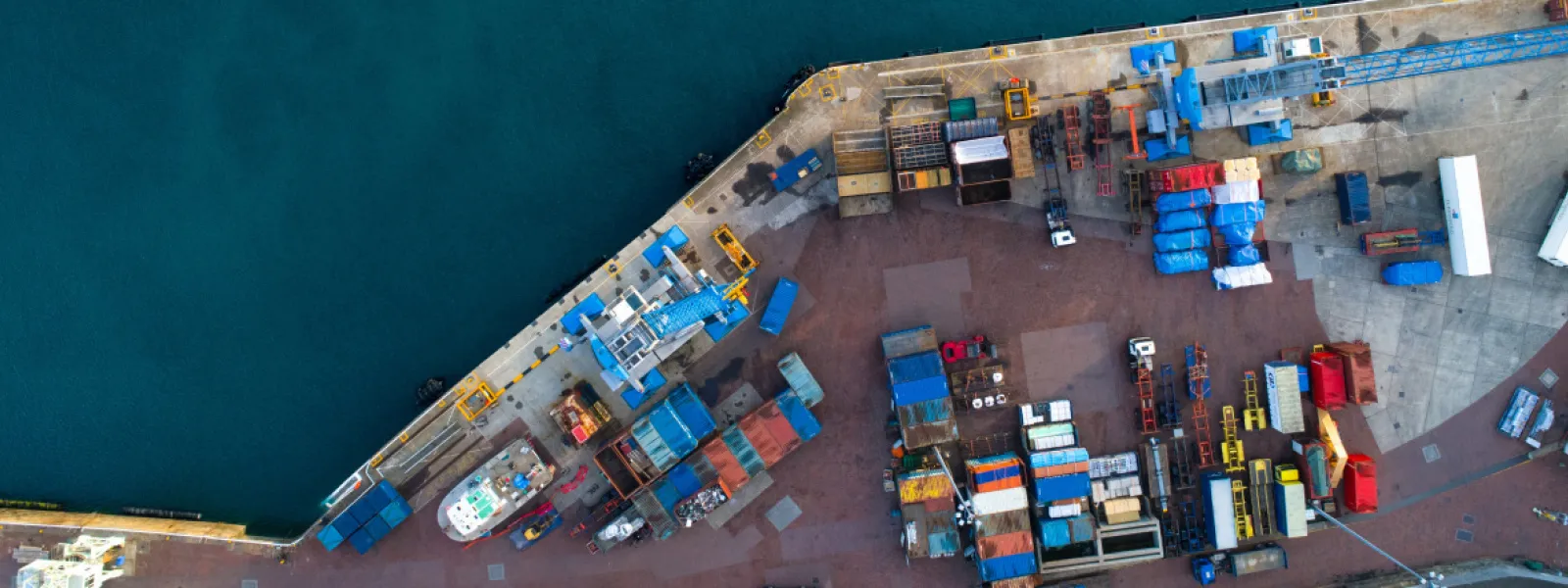A new European agenda to speed up the development of maritime industries
NAT-VI/038
A new European agenda to speed up the development of maritime industries
to induce a dialogue for a new European agenda on maritime industries
to create a dialogue between the European Commission, regions and stakeholders for a new LeaderSHIP initiative
to make EU regions more resilient towards competition from third countries
to create a dialogue between the European Commission, regions and stakeholders for a new LeaderSHIP initiative
to make EU regions more resilient towards competition from third countries
The rapporteur engaged the European Commission and major stakeholders on multiple occasions as a speaker and organiser of events and in bilateral meetings. As a result of this work and the proposals laid out in the opinion the European Commission started a mapping exercise in 2019, which will determine the scope of the measures needed to further support EU's maritime tech industry. Furthermore, major elements of the cooperation are taken over in the new Industrial Strategy.
THE EUROPEAN COMMITTEE OF THE REGIONS
restates the need for maritime ambitions to be at the heart of the Commission's next term and for a new industrial policy roadmap for the maritime industries to be adopted rapidly, following the LeaderSHIP 2020 strategy;
proposes launching the "European Sea Tech" scheme, aimed at mobilising the regions to build European networks around value chains and the new challenges facing the maritime industries: networks that link regional innovation systems;
highlights the contribution of maritime industries to the energy transition and the fight against climate change, particularly through the renewable energy sector, the decarbonisation of maritime transport and the circular economy, including recycling plastic from oceans;
stresses the importance of protecting and creating good quality sustainable jobs, especially in shipbuilding, which entails protecting Europe from the unfair competition that is tearing apart its industrial fabric;
recommends that significant attention be paid to supporting coastal communities, particularly on islands and in the outermost regions;
recalls the need for investment in the transformation and development of the traditional activities of fisheries and aquaculture, which remain the bedrock of the blue bioeconomy;
encourages a cross-cutting approach to maritime industries that integrates all maritime activities – both historic and new, civilian and military – and takes into consideration the critical cross-cutting challenges of the ecological and digital transitions and Industry 4.0;
calls for greater consideration of the challenges specific to the maritime environment and their consequences in terms of support policy, including the need to introduce dedicated financing tools that factor in the risks inherent to the constraints of the marine environment and to the long investment cycle;
proposes full recognition of ports as platforms for the blue economy and encourages a rapid transition of ports to clean energies and decarbonised maritime transport as levers for the development of the maritime industry.
restates the need for maritime ambitions to be at the heart of the Commission's next term and for a new industrial policy roadmap for the maritime industries to be adopted rapidly, following the LeaderSHIP 2020 strategy;
proposes launching the "European Sea Tech" scheme, aimed at mobilising the regions to build European networks around value chains and the new challenges facing the maritime industries: networks that link regional innovation systems;
highlights the contribution of maritime industries to the energy transition and the fight against climate change, particularly through the renewable energy sector, the decarbonisation of maritime transport and the circular economy, including recycling plastic from oceans;
stresses the importance of protecting and creating good quality sustainable jobs, especially in shipbuilding, which entails protecting Europe from the unfair competition that is tearing apart its industrial fabric;
recommends that significant attention be paid to supporting coastal communities, particularly on islands and in the outermost regions;
recalls the need for investment in the transformation and development of the traditional activities of fisheries and aquaculture, which remain the bedrock of the blue bioeconomy;
encourages a cross-cutting approach to maritime industries that integrates all maritime activities – both historic and new, civilian and military – and takes into consideration the critical cross-cutting challenges of the ecological and digital transitions and Industry 4.0;
calls for greater consideration of the challenges specific to the maritime environment and their consequences in terms of support policy, including the need to introduce dedicated financing tools that factor in the risks inherent to the constraints of the marine environment and to the long investment cycle;
proposes full recognition of ports as platforms for the blue economy and encourages a rapid transition of ports to clean energies and decarbonised maritime transport as levers for the development of the maritime industry.
